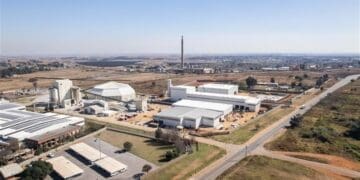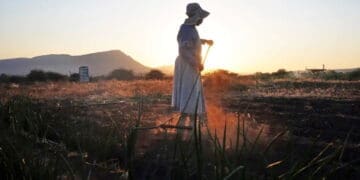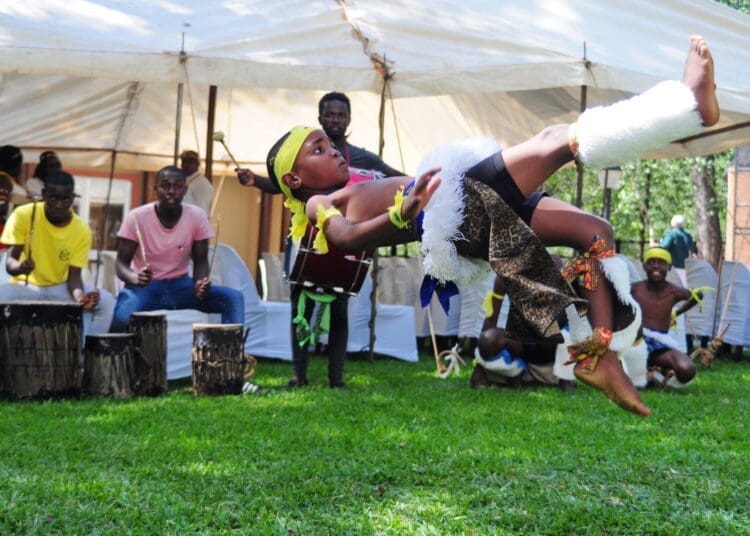Tourism operators and farmers in the SME sector have met Minister of Finance Enoch Godongwana’s 2025 Medium-Term Budget Policy Statement (MTBPS) with cautious optimism saying its focus on lower inflation, infrastructure investment, and structural reforms could unlock growth, provided that implementation follows.
Godongwana announced that the government would narrow its inflation target to 3% (±1%) and maintain fiscal discipline to stabilise debt at 77.9% of GDP by 2025/26, while boosting infrastructure spending to more than R1 trillion over the next three years.
“Our goal is to create a stable macroeconomic environment that supports investment, job creation, and inclusive growth,” he said. “Through structural reforms and partnerships with the private sector, we are laying the foundation for faster and more sustainable economic recovery.”
According to Nkululeko Paul, a Durban-based photographer who works under Sizolwami Ark in Motion Picture, the budget’s commitment to lower borrowing costs could be transformative. “With lower interest rates, loans for business financing will have lower monthly payments and total costs over time,” he said.
“That could encourage small businesses like mine to borrow more to invest in growth and create jobs.” Paul also believes that the government’s renewed focus on public-private partnerships could open contracting opportunities for businesses in construction, logistics, and project management.
In KwaZulu-Natal, Clermont Nosisa Kakana, founder of Yoyisa NT (Pty) Ltd, specialising in various artworks, said the MTBPS could provide a much-needed boost for local creatives. She said lower interest rates could help her expand her business and open more shops across the province, creating jobs and opportunities for young artisans.
“With reduced inflation, I can budget better and invest in uplifting my craft skills, taking our local beadwork to new heights,” she said. Kakana added that the government’s infrastructure drive could give small creative businesses like hers greater exposure through public art opportunities at tourist sites, airports, and government buildings.
In Limpopo, Seemole Thobane, founder of Berrytops Beauty Bar in Modimolle, said a more predictable economic climate could help small entrepreneurs plan ahead.
“Lower interest rates could reduce our borrowing costs, making it easier to invest in equipment and expansion,” she said.
“If inflation stabilises, our operating costs might become more predictable, allowing for better budgeting,” she said.
She added that improved logistics and transport networks would reduce supply chain costs and improve delivery times for small businesses far from major markets.
Tourism operators also see the budget as a step in the right direction. Katlego Mogopodi, CEO of Mogopodi Adventures in Northwest, Rustenburg, said lower interest rates and better infrastructure could significantly boost small tourism enterprises.
“Accessing affordable credit is one of the biggest challenges for small enterprises, especially in tourism, where upfront investment in equipment, vehicles, and facilities is high,” he said. “The government’s focus on roads, energy, and digital connectivity could be a game changer for us.”
Mogopodi said that public-private partnerships in tourism infrastructure and community development could help small operators collaborate with larger players and reach broader markets. Godongwana echoed this sentiment, saying that “Public-private partnerships will be critical in crowding in private sector investment and ensuring that infrastructure projects create opportunities for local enterprises.”
In KwaZulu-Natal’s uMsinga area, farmer Mhlabunzima Zulu, who runs MV Zulu Farming and Projects, said poor infrastructure continues to hamper rural businesses.
“My farm is based in the KwaNxamalala area, and it is not easily accessible. I drive through a damaged gravel road daily,” he said.
“Transporting produce is difficult and damages our vehicles. If the government improves rural roads and logistics, it will make a huge difference,” Zulu said.
He said reliable transport and energy infrastructure would help farmers reduce operational costs and reach markets faster.
“I am hopeful that the restructuring of business incentives will make them more accessible to smaller farmers,” he added.
Independent tourist guide Gideon Mokwena from Limpopo said the MTBPS could create an enabling environment for small tourism operators.
“With cheaper borrowing, guides can upgrade equipment or vehicles. Better roads mean tourists can reach remote attractions faster, and improved digital infrastructure makes it easier to market online or process payments,” said Mokwena.
He added that sector-specific incentives such as tax breaks for registered guides or grants for heritage preservation could help expand tourism offerings.
Godongwana concluded that fiscal discipline and reform are essential for South Africa’s long-term growth path. “We are making the difficult choices today to build a foundation for sustainable, inclusive development,” he said. “Small businesses will be central to driving this transformation.”































































